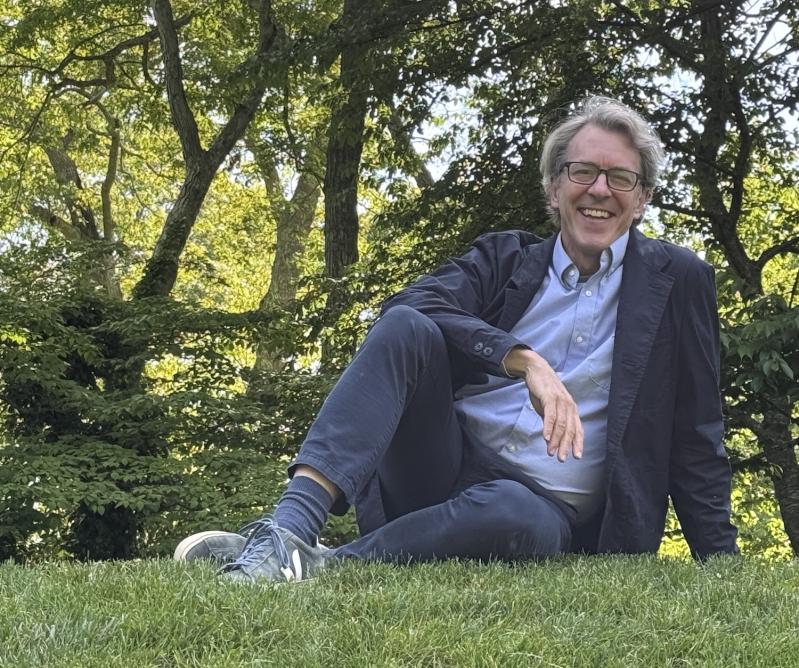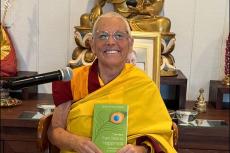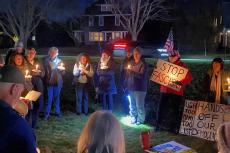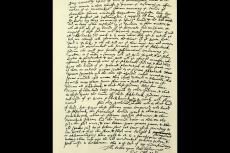Summer in East Hampton Town can fairly be called a hotbed of conspicuous consumption, what with its ostentatious displays of extreme wealth, as seen in the enormous second houses occupied only part of the year, the luxury cars that crowd the town’s roadways, and the explosion of jet and helicopter traffic to and from East Hampton Town Airport between Memorial Day and Labor Day. As of last year, the wealthiest 1 percent of American households controlled almost 31 percent of the nation’s wealth, more than the entire middle class.
Amid this maelstrom of materialism, one man is offering a way to direct that great abundance — of money, of celebrity, of influence — to manifest a better world. Starting this month, Colin Beavan, once famously known as “No Impact Man,” now an executive coach, will lead three in-person gatherings aimed at “those ready to step out of the noise and into meaningful, catalytic connection,” as he puts it.
“No Impact Man” is a book and documentary about Mr. Beavan and his family’s yearlong endeavor to curtail their environmental impact by giving up electricity, gas-powered transportation, shipped food, and public waste disposal, all while living in New York City. The book’s subtitle: “The Adventures of a Guilty Liberal Who Attempts to Save the Planet and the Discoveries He Makes About Himself and Our Way of Life in the Process.” It was a precursor to the work he does today, which is also informed by the Eastern philosophy he has long studied.
“I was a book writer,” Mr. Beavan said, the author of historical nonfiction including “Operation Jedburgh: D-Day and America’s First Shadow War” and “Fingerprints: The Origins of Crime Detection and the Murder Case That Launched Forensic Science.” But “I was more concerned with the human condition than history, and in particular the intersection between the fact that consumerism is a human mistake as a direction in life and the fact that consumerism was contributing to damage of our habitat. I wanted to write about that. I am very interested in this idea of how changing myself can change the world. ‘No Impact Man’ became a natural way for me to write about these things.”
It is challenging to live without modern conveniences, he said, “but also a tremendous opportunity to learn. That year of living environmentally was a big questioning about what is important in life. It’s challenging, but in some ways it was like a spiritual retreat.”
In his late 20s, the New York City native trained as a therapist, but never practiced. “When I was 29,” he said, “I had a dark night of the soul. I didn’t understand life. I was successful, had a Ph.D., had run a [public relations] agency, but just didn’t understand the point of it all. I started on a spiritual quest, and finally landed with a Zen group who refused to give me any answers. They told me I had to find the answers for myself, and I really, really liked that. I’ve been a Zen practitioner ever since.”
Zen, he said, is “understanding yourself. The monk who founded my tradition said, ‘Buddhism and Taoism got married and had a child, and the child’s name was Zen.’ “
Mr. Beavan later wrote “How to Be Alive: A Guide to the Kind of Happiness That Helps the World,” which, like “No Impact Man,” was about manifesting change in the world by changing oneself. Organically, people started to approach him about coaching. “How does changing my own thoughts and deeds change the world around me? That is the exact same question a leader has — a leader of a family, a community, an organization. This question of ‘How do I lead by leading myself’ is the central question of coaching. I help people understand how holding their own mind and behavior can lead to the kinds of changes they want to see in their organizations.”
During the Covid-19 pandemic, Mr. Beavan’s former wife and her partner invited him to live with them in Springs. “We split up 14 years ago but we’re still best friends,” he said. “I started to spend a lot of time here, probably at least a third of every year since then.”
It is here — Northwest Woods in East Hampton — that Mr. Beavan will hold a series of three in-person gatherings that are by application and limited to a small number of participants. “Full Contact Group,” happening on June 28, is about “understanding our own emotionality and the way it rules us.” Full contact, he said, means “full contact with ourselves and others. It is an interactive group which is all about studying our interactions in that group for a whole day, as a way of becoming aware of our emotionality and our stories — the things that rule us — and how we can stop them from ruling us.”
“Alchemy of Personal Reinvention,” to take place on July 26, is about “understanding how we can, instead of being ruled by our emotionality, transform ourselves and act from our aspirations,” and “understanding what it is we truly want in life, which may feel impossible, but then re-alchemizing and recreating ourselves into the people we want to be.”
“The Calmness of Horses and Whales,” on Aug. 30, is about “learning to self-regulate so we are able to stay strategic about how we behave.” There will be interactions with horses, “and hopefully we’ll get to see some whales, if they cooperate, and also instruction on meditation and self-regulation about how we can stay calm enough in our lives” to remain true to one’s aspirations “as opposed to getting triggered in our own traumas.”
The first two gatherings cost $1,000, and the third $1,500. Those interested can apply to join at colinbeavan.com. “I like to make sure it’s right for the person,” he said, “and the person is right for the group.”
His clients hail from a wide range of backgrounds and fields including corporate executives, nonprofit leaders, philanthropists, and people in life transition. “Most people attracted to my work are what I would call heart-centered leaders,” Mr. Beavan said. “Meaning, while the bottom line is important in any business, they also care about how that profit is made, and they want it made in a way that actually is good for themselves and their stakeholders.” Fifty percent of his clients are philanthropists, he said, who collectively give away more than $5 billion annually.
Generally, those who most enjoy his gatherings “actually like to do self-development work. They think it’s fun and interesting. It’s not like a medicine to them. It’s part of what they enjoy.”




